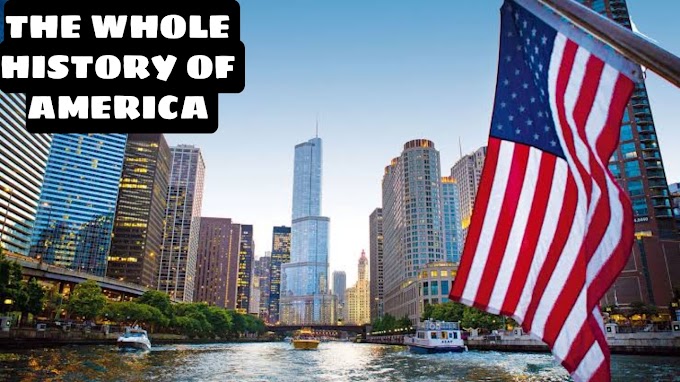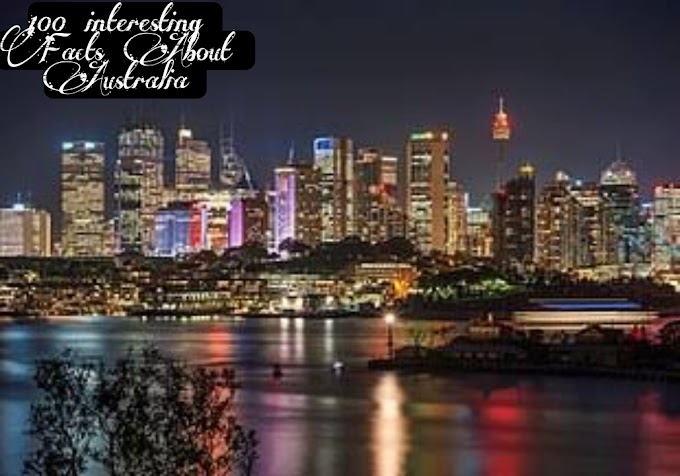Top 50 Interesting Facts About Paraguay
Hello Friends:
1 Formerly a Spanish colony Paraguay gained independence in 1811.
2 Paraguay receives almost 100% of its electricity from hydroelectric power the e type of dam which is co-owned with Brazil.
3 Brazil produces 75% of this Paraguay is split in two by the Paraguay.
4 Paraguay River and it is the second largest river in South America although nearly twice the size of the UK.
5 paraguay's population in 2015 was just over 6.5 million barely 1/10 of the UK the currency used is the Paraguayan Gorani.
6 Paraguayan Gorani the iguazu falls are certainly something to see consisting of over 275 separate water falls it is twice as wide and taller than the Iguazu Falls Paraguay's national dish is SOPA.
7 paraguay which is a corn bread with onions and cheese soy is one of the biggest exports.
8 paraguay ranked number six in the world for soy production former.
9 Paraguayan football captain jos Luis chilavert was a rare asset.
10 Paraguay playing nearly 700 competitive games for club and country as a goalkeeper hello fans AHA minimus medic Academy.
You May like this:History Of Paraguay
11 Paraguay’s nickname is the “Corazón de América” (the Heart of America). The name refers to Paraguay’s location in the center of the South American continent.
12 Paraguay’s name is said to mean “crowned river” after the Guarani words for water and palm crown. According to former president Juan Natalicio Gonzalez, it means “river of the habitants of the sea.”
13 The Itaipu Dam on the Parana River produces almost all of Paraguay’s electricity. Situated on the border with Brazil, the dam is owned by both countries.14 The Paraná River, which runs through Brazil, Paraguay, and Argentina is South America’s second-longest river after the more famous Amazon River.
15 Paraguay’s literacy rate is higher than that of the United States. Paraguay’s citizens age 15 and older read and write at a 94 percent literacy rate, compared to 86 percent for the U.S.
16 The native Guarana people were living in Paraguay long before the arrival of the Spanish in the early 1600s. Today, 95 percent of Paraguay’s people are mestizos, descendants of those Spanish men and Guarana women. This makes Paraguay’s population the most homogenous in South America.
17 Guarani is still spoken by everyone in Paraguay, regardless of their income, politics or social class. This is one of the country’s unifying strengths. Other indigenous heritages are its traditional 38-string harp music and the traditional bottle dance, performed with dancers twirling bottles around their heads.
18 Paraguay’s people make some of the world’s finest lacework. Nanduti (meaning “spiderweb”) is beautiful lace created in circular designs and found in a rainbow of various colors. Other traditional folk arts are embroidered cloth, black clay work and ceramics, and gorgeous silver jewelry in filigree designs.
19 Paraguay’s national beverage is mate. Mate (pronounced “mahtay”) is often served hot. When it is served chilled, it is called tereré. It is imbibed through a metal drinking straw called a bombilla. Yerba mate, which is related to common holly, is cultivated on plantations.
20 The day’s main meal is eaten at noon. Two staples of the Paraguayan diet are corn and cassava, a starchy root vegetable. Cassava (or mandioca) is baked with cheeses to make the thick bread known as Chipa. Corn is used in Paraguayan soup (sopa paraguaya), Bori bori soup and other dishes.




Country At A Glance:Paraguay




Independence:14 May 1811 (from Spain)
Capital City:Asunción:25°16′S 57°40′W
Total area:total: 406,752 sq km
land: 397,302 sq km
water: 9,450 sq km
Population:7,272,639 (July 2021 est.)
Literacy Rate:total population: 94.5%
Suffrage18 years of age; universal and compulsory until the age of 75
Official Language:Spanish Guaraní
Demonym:Paraguayan
Government type:presidential republic
President:Mario Abdo Benítez
Vice-President:Hugo Velázquez
Borders:Brazil, Argentina, Bolivia
Currency:Guaraní (PYG)
Religion:Roman Catholics
National anthem"Paraguayos, Republica o muerte!" (Paraguayans, The Republic or Death!)
Life expectancy: At birth 78.13 years (est. 2021)Life expectancy at birth indicates the number of years a newborn infant would live if prevailing patterns of mortality at the time of its birth were to stay the same throughout its life.
Climate:Subtropical to temperate; substantial rainfall in the eastern portions, becoming semiarid in the far west
Terrain grassy:Plains and wooded hills east of Rio Paraguay; Gran Chaco region west of Rio Paraguay mostly low, marshy plain near the river, and dry forest and thorny scrub elsewhere
Mean elevation:178 m
Lowest point:junction of Rio Paraguay and Rio Parana 46 m
Highest point:Cerro Pero 842 m
Natural resources:hydropower, timber, iron ore, manganese, limestone
Agricultural land:53.8%
Industries:sugar, cement, textiles, beverages, wood products, steel, base metals, electric power
Exports:$11.81 billion note: data are in current year dollars (2020 est.)
soybeans, livestock feed, cotton, meat, edible oils, wood, leather
Imports:$10.62 billion note: data are in current year dollars (2020 est.)
road vehicles, consumer goods, tobacco, petroleum products, electrical machinery, tractors, chemicals, vehicle parts
GDP - per capita:(PPP)$12,300 note: data are in 2017 dollars (2020 est.)
Birth rate:16.43 births/1,000 population (2021 est.)
Death rate:4.84 deaths/1,000 population (2021 est.)
Sex ratio:1 male(s)/female (2020 est.)
Internet country code.py
Time Zone:PYT (UTC–4)
Summer (DST) PYST (UTC–3)
21 Ciudad del Este’s crowded street bazaars attract many Brazilians across the river for bargains. Many Brazilians are moving to
Paraguay because its homDes are less expensive.
23 The western Paraguay region of Chaco has 60 percent of the country’s land, but only 2 percent of the people live there. The remainder of the population lives within 100 miles of the capital Asuncion in eastern Paraguay. It is estimated that half of the population lives below the poverty level.
24 Paraguay is the world’s sixth-largest soybean producer, the second-largest tung oil producer, the second-largest stevia producer, sixth-largest corn exporter, seventh-largest beef exporter and fourteenth-largest wheat exporter. Over half of Paraguayans work in agriculture and forestry.
25 The people of Paraguay are known for their gentle and friendly behavior toward tourists. Do be aware, however, that cheap inns and hotels in Paraguay usually serve as local brothels, as well. European and North American tourists are somewhat of a novelty, and they are treated with respect.
26 The well-preserved Jesuit ruins in Paraguay dating back to 1706 have been named UNESCO World Heritage sites, though they are some of the most seldom visited in South America. The Robert De Niro film, ‘The Mission,’ was filmed at some of these historic sites.
27 Paraguay has 42 protected wildlife areas and 10 national parks. There are comfortable accommodations and tours available in the Mbaracayu tropical forests, as well as 89 mammal species and 410 bird species. Ybycui features metallic blue butterflies, waterfalls and howler monkeys.
28 Paraguay’s colorful festivals also attract tourists. The Festival de San Juan in June features fire walking in hot coals and embers, great food and the ritual burning of an effigy of Judas Iscariot. February’s San Blas Fiestas are Carnival celebrations. Bus service is safe and inexpensive.
29 There are old, established Australian, German and Japanese communities in
Paraguay where visitors can say ‘g’day,’ dine on sushi, rice and fresh vegetables and enjoy fresh schnitzels. In fact, the New Germany colony was established by Friedrich Nietzsche’s sister in the 1880s.
30 The native Ache peoples gave up cannibalism more than 20 years ago. Today, they still live simply (primitively), but are friendly and are known to welcome visitors in their rain forest homes.
31 Climbing on and off the national buses, “Chipa ladies” dress in blue miniskirts, train conductor caps and fishnet stockings to sell Chipa to passengers.
32 Paraguay’s name may have come from a parrot befriended by the country’s earliest Jesuit priests. Named Frank, he eventually became dinner for those priests. Whether true or not, the country was actually labeled on 16th-century maps as “Parrot”.
34 Homes have no doorbells. To announce your arrival, clap your hands. With windows always open in the hot climate, claps are clearly heard inside.
35 Dueling is legal here, but only between participants who are registered blood donors.
36 One of Paraguay’s hidden secrets is Fermina Benitezs, the lady of 100,000 chickens. Now 70, she began making her black clay folk-art chickens when she was 17.
38 Before the war, Paraguay was prosperous with substantial gold assets. None are known to have been recovered.
40 Paraguay didn’t grant women the right to vote until 1961, the last Latin American nation to do so. Constitutional reforms in 1992 finally gave women equal rights within their marriages.
41 Lapacho (or Taheebo) comes from the inner bark of Purple or Red Lapacho trees and is used in herbal medicines and as tea. An ancient cure, it was one of the primary medicines of the Incas.
42 The people of Paraguay enjoy sports, including football (soccer), rugby, tennis, and volleyball. Fishing is as popular as football.
43 Paraguay is the only country worldwide whose national flag has different emblems on each side. The country’s Coat of Arms is on the front and its Treasury Seal is on the back with its motto, ‘Paz y Justica’ (Peace and Justice). Paraguay’s flag is one of the world’s oldest national flags.
44 Though Paraguay is a land-locked country with no border on the ocean, it has a well-trained navy. Their navy is the largest of any land-locked country in the world.
45 Lguacu Falls, spanning the Iguacu River, is made up of more than 275 individual waterfall cascades, is taller than Niagara Falls, and is twice its width.
46 As many as 210 football stadiums could be built with the same amount of concrete as was used to build the Itaipu Dam.
47 Paraguay is just a little smaller than the state of California.
48 Famous Paraguayan athletes are Jose Luis Chilavert of football (soccer) and Rossana De Los Rios (tennis). Leryn Franco is a javelin thrower who participated in three different Olympic games and was also featured in the 2011 ‘Sports Illustrated’ “Swimsuit Edition.”
49 Paraguay is home to the world’s largest rodent called the Capybara, which is basically a giant guinea pig.
50 Endangered animals include the jaguar, harpy eagle, red parrot, giant armadillo and anteater (jurumi). More Uruguay animals include brown wolves, foxes, tapirs and more than 1000 species of birds. Paraguay also has many boa constrictors and crocodiles, and even some piranha, as well.
I hope you enjoyed this Article please let us know which fact you liked the most and why? So Guys See you in the next one Goodbye.






























